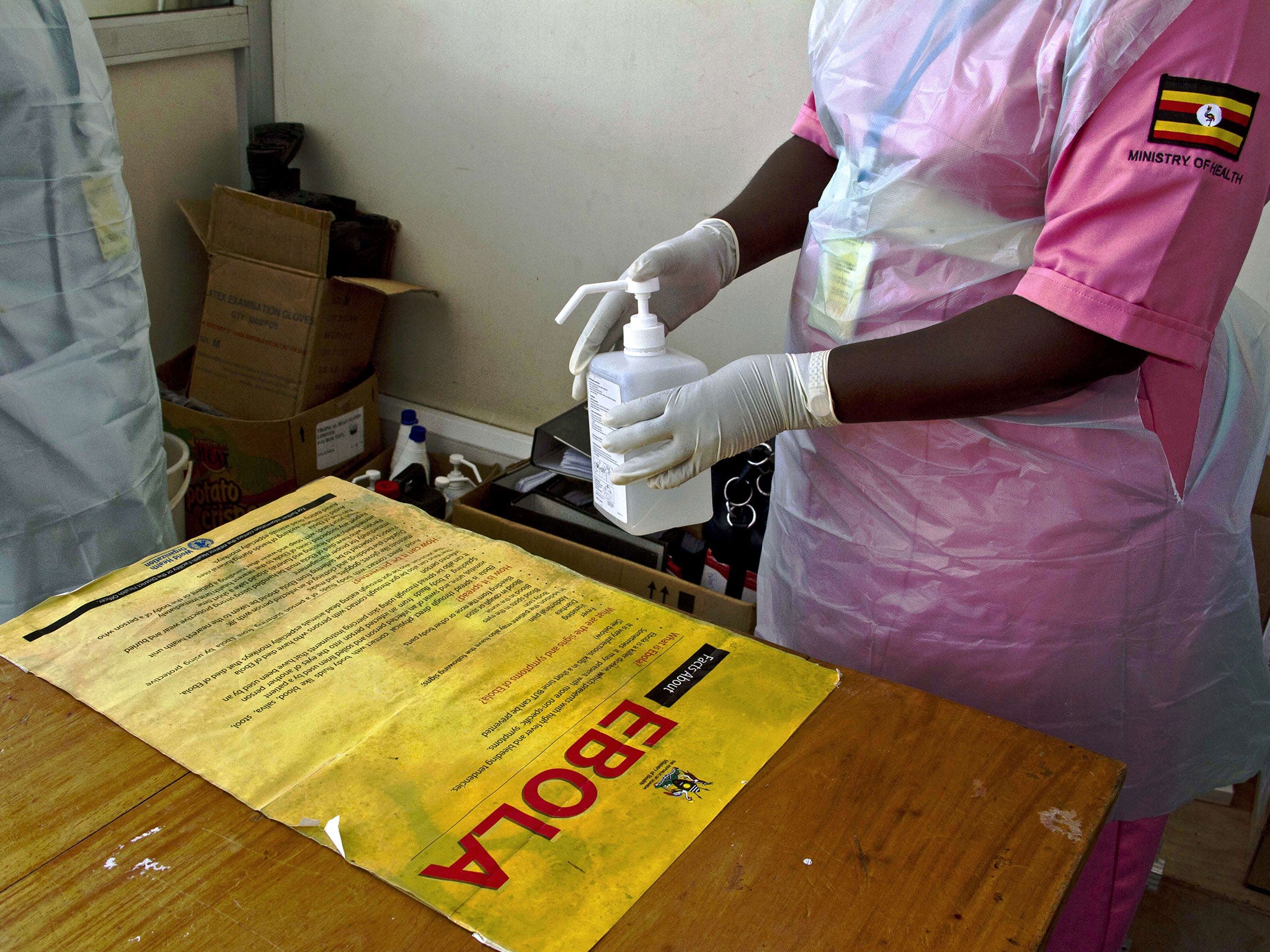Ebola outbreak: Burial staff put at risk as dead bodies are more contagious than living
Those who treat and bury the bodies of the dead, which are even more contagious than living Ebola patients, are especially at risk for infection

Your support helps us to tell the story
From reproductive rights to climate change to Big Tech, The Independent is on the ground when the story is developing. Whether it's investigating the financials of Elon Musk's pro-Trump PAC or producing our latest documentary, 'The A Word', which shines a light on the American women fighting for reproductive rights, we know how important it is to parse out the facts from the messaging.
At such a critical moment in US history, we need reporters on the ground. Your donation allows us to keep sending journalists to speak to both sides of the story.
The Independent is trusted by Americans across the entire political spectrum. And unlike many other quality news outlets, we choose not to lock Americans out of our reporting and analysis with paywalls. We believe quality journalism should be available to everyone, paid for by those who can afford it.
Your support makes all the difference.Twenty-one bodies were awaiting burials when the excavator digging their graves got stuck in the mud.
With armed soldiers standing guard, the highly infectious bodies – which had been transported from a morgue by truck amid the worst Ebola outbreak in history – were forced to wait in the open until a second digger could be hired and transported to the site.
Eventually, the bodies were buried. The episode was emblematic of the logistical problems facing officials trying to cope with the grim task of burying the dead and preventing them from infecting the living as the deadly Ebola virus continues to ravage West Africa. And those are just the bodies health officials have been able to properly prepare for burial in Liberia, where hundreds have died from the disease this year and widespread reports describe Ebola victims lying on the streets for days, increasing the risk of infection by others.
Those who treat and bury the bodies of the dead, which are even more contagious than living Ebola patients, are especially at risk for infection.
The World Health Organisation (WHO) provides specific guidelines for how to safely transport and bury Ebola victims. They include instructions to “be aware of the [victim’s] family’s cultural practices and religious beliefs” and to “help the family understand why some practices cannot be done because they place the family or others at risk for exposure”. Among the traditional practices the WHO says cannot be followed with Ebola victims: family-led body preparation and religious rituals that require direct contact with the corpse. Muslim tradition, for instance, requires that family members of the same gender should wash the body themselves before burial.
The problem is compounded because Ebola can force a victim’s body to release infectious fluids including blood, vomit and diarrhoea, especially in later stages of the disease.
Some Ebola victims are sent for burial straight from a treatment centre, which minimises improper handling and exposure to family members. In these cases, as the Red Cross explained, family members often opt to have the bodies of their loved ones buried outside of their communities, in a dedicated space for Ebola victims. But when a victim dies in a community and workers must retrieve the body, the situation is more complicated. In these cases, the Red Cross follows a procedure similar to the one recommended by the WHO: First, the body is repeatedly disinfected. Then, it’s placed in at least two body bags. When the burial happens, anything the body touched – pillows, bedsheets, the protective clothing worn by the workers who prepared it – are either burnt or buried with it.
The WHO says there are not enough trained people on the ground in Liberia, Sierra Leone and Guinea who are capable of dealing with the daily deaths in a proper manner.
The Red Cross singled out Sierra Leone as a relative success case. Officials there have created “dead body management” teams, often staffed by paid members of the community, to bury the dead, and the system seems to be improving overall.
© THE WASHINGTON POST
Join our commenting forum
Join thought-provoking conversations, follow other Independent readers and see their replies
Comments